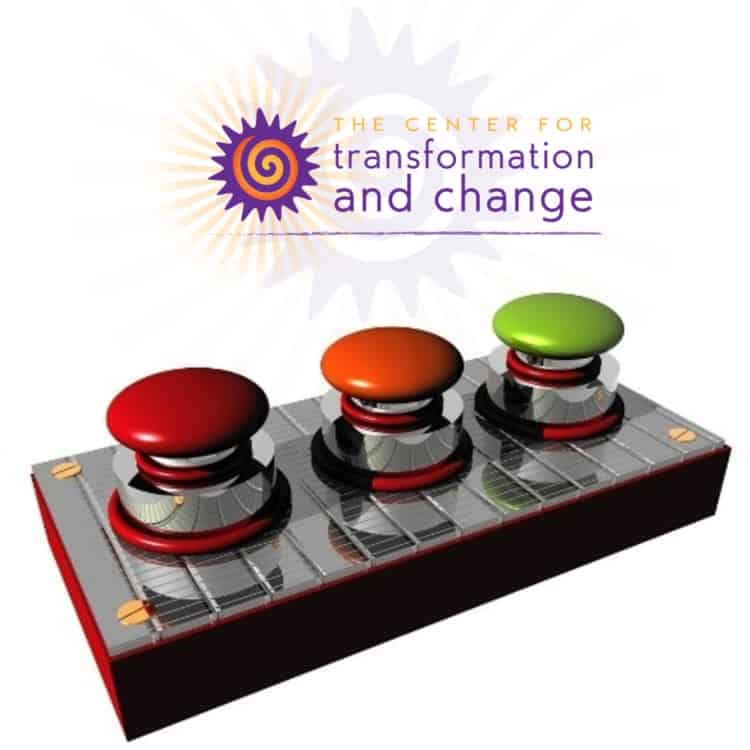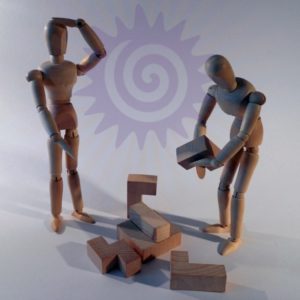Identify Your Hot Buttons at Work to Respond More Effectively.
Hot buttons. Everybody’s got ‘em.
OK, admit it. Sometimes co-workers, colleagues or work situations irritate you.
And to add insult to injury, you get even more annoyed when those around you don’t seem to be bothered by any of it.
Sound familiar?
Triggers are “in the eye of the beholder.”
It’s important to identify just what your individual triggers are – and to effectively address them – so that you can respond more productively the next time you feel triggered.
What Pushes Your Buttons in the Workplace?
Read over the following samples of common workplace triggering situations. As you read each one, consider how much you emotionally react to each of them. Use the -10 to +10 scale:
-10 -9 -8 -7 – 6 -5 – 4 – 3 – 2 -1 0 +1 +2 +3 +4 +5 +6 +7 +8 +9 +10
high——-——–moderate—–—–mild———–moderate——–——-high
When someone (colleague, supervisor, client, etc.):
- Doesn’t follow your instructions or do what you asked
- Takes credit for your work
- Is belittling or demeaning
When your supervisor or manager:
- Micromanages and second-guesses you
- Is controlling rather than empowering and inspiring
- Expects you to work late and come in early for no additional compensation
When you:
- Make a mistake or an error
- Do or say something inappropriate or offensive
- Have a strong opinion and no one else agrees with you
 Remember, not all difficult situations are negative. Our emotions can overwhelm us even in what we perceive to be a positive situation. For instance, if someone is assigned a new major project, they may feel overly excited and at the same time, anxious that they’re not competent enough.
Remember, not all difficult situations are negative. Our emotions can overwhelm us even in what we perceive to be a positive situation. For instance, if someone is assigned a new major project, they may feel overly excited and at the same time, anxious that they’re not competent enough.
Next Step: Review and Analyze Your Triggers
After you’ve scored yourself on the above triggering situations, jot down some instances you’ve personally experienced that pushed your buttons.
- What happened?
- What were you thinking and feeling?
- On the -10 to +10 Scale, how intense were your emotions?
- How did you react?
Are You Starting to See a Pattern With Your Hot Buttons?
Because our everyday lives are so hectic and stress-filled, it’s easy to forget the details of triggering situations or to minimize the impacts that they have – not only on us, but on our colleagues as well.
Keeping a journal of your personal triggering situations can help you gain a rich source of information and direction for further healing, growth and learning.
Those who journal about their difficult situations often make the most progress in handling these troublesome situations more effectively in the future.
Digging Deeper Into Your Triggers
It takes a good deal of courage to look at yourself honestly.
 In order to effectively navigate through difficult situations, evaluating yourself honestly is the first important step.
In order to effectively navigate through difficult situations, evaluating yourself honestly is the first important step.
You might also consider these questions:
- Do I have the same level of emotional reactions to everyone who exhibits this behavior?
- Are there patterns related to the social identity groups of the people in these difficult situations when I may feel more or less emotional?
Identifying patterns can reveal vital clues to some of the intrapersonal roots that are fueling your reactions – and may help you better anticipate and effectively handle future difficult workplace situations.
You Can Break Away From The Triggering Event Cycle
When we experience triggering situations, we can feel like a dog chasing its tail. Round and round we go, trying to stop reacting the same way, but we can’t let go.
Can you relate?
Triggers can have us going around and around in confusion, disbelief, anxiety, and annoyance.
Don’t give up!
I can help you recognize, analyze and diffuse triggering situations so you’ll respond more thoughtfully and effectively. Sound like a plan?
Then bring your colleagues and join me for a FREE 75-min webinar Thursday, September 13th, 2018, Navigating Difficult Situations, Pt. 1. I’ll show you how to effectively engage each other during triggering situations so you can improve productivity and create greater inclusion in your workplace. Claim your spot right here.





One Comment
Dr Kanika Gupta
I have been getting to know myself better.
Earlier it was only bullies, and I cover up it with arrogance and meaness. I am too nice normally and normally my expectation from the world is be good.
Seems like now everything triggers something in me.
Still can’t understand how to be with everyone and make the best out of the relationships